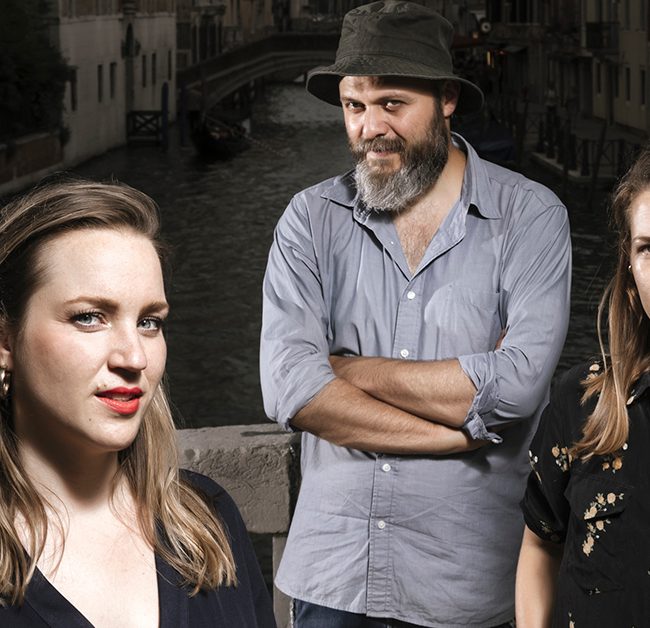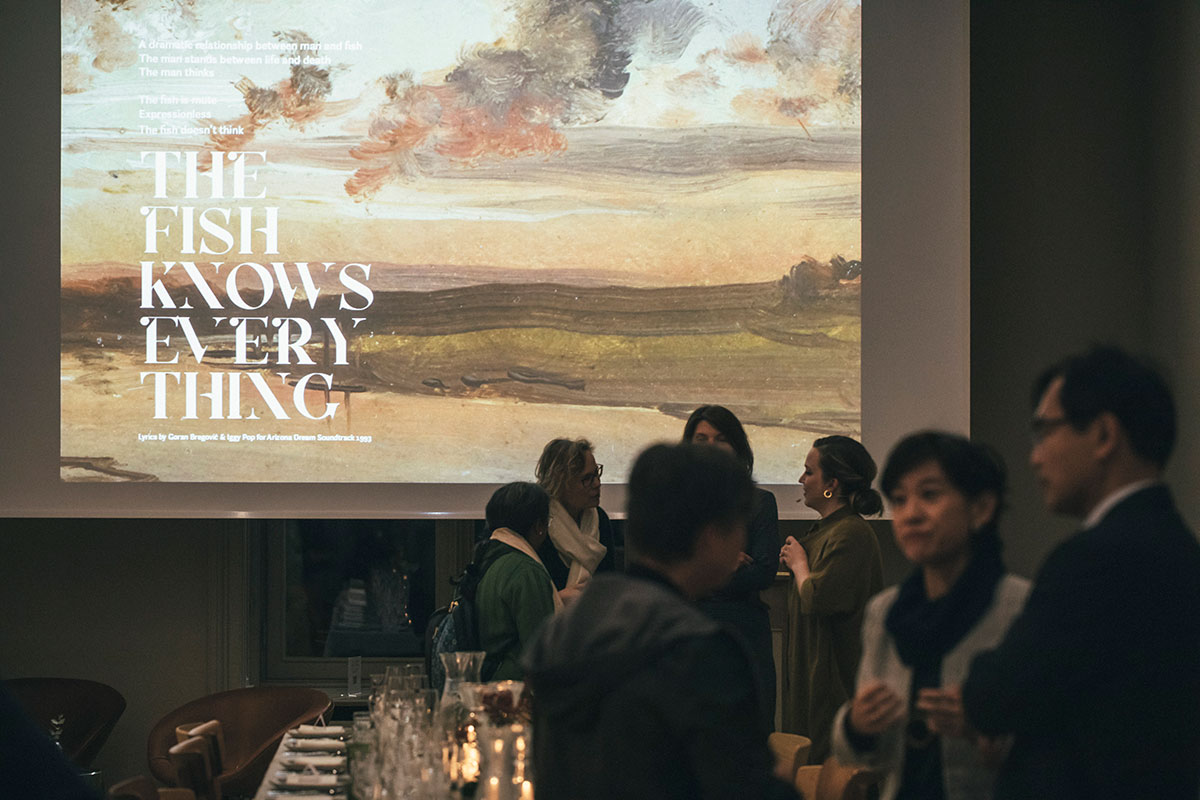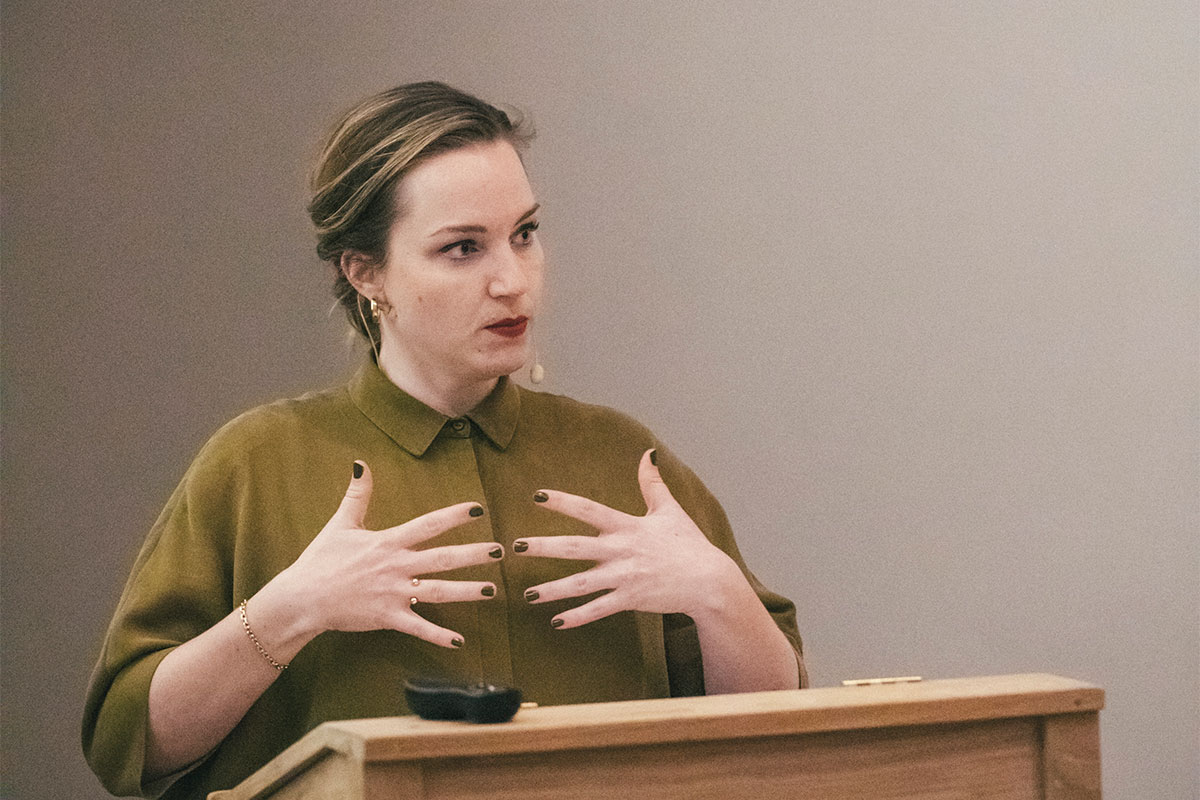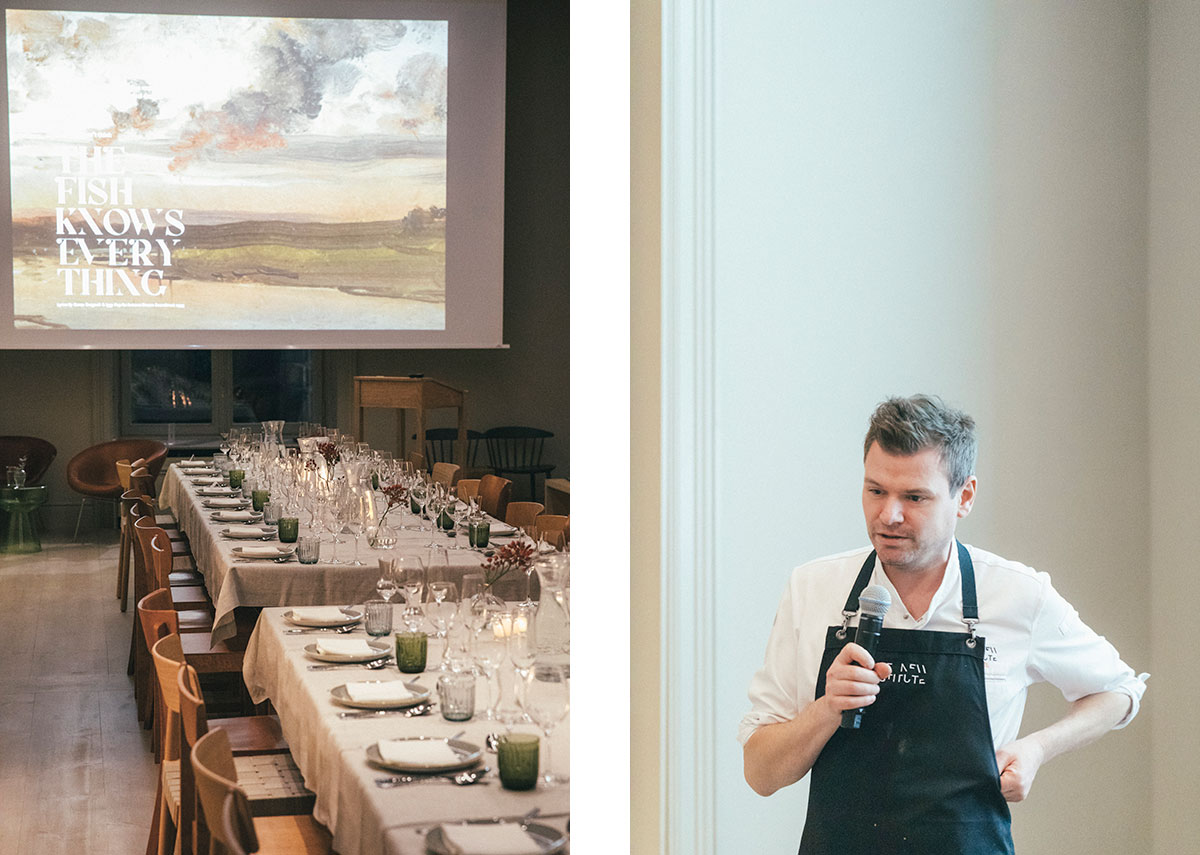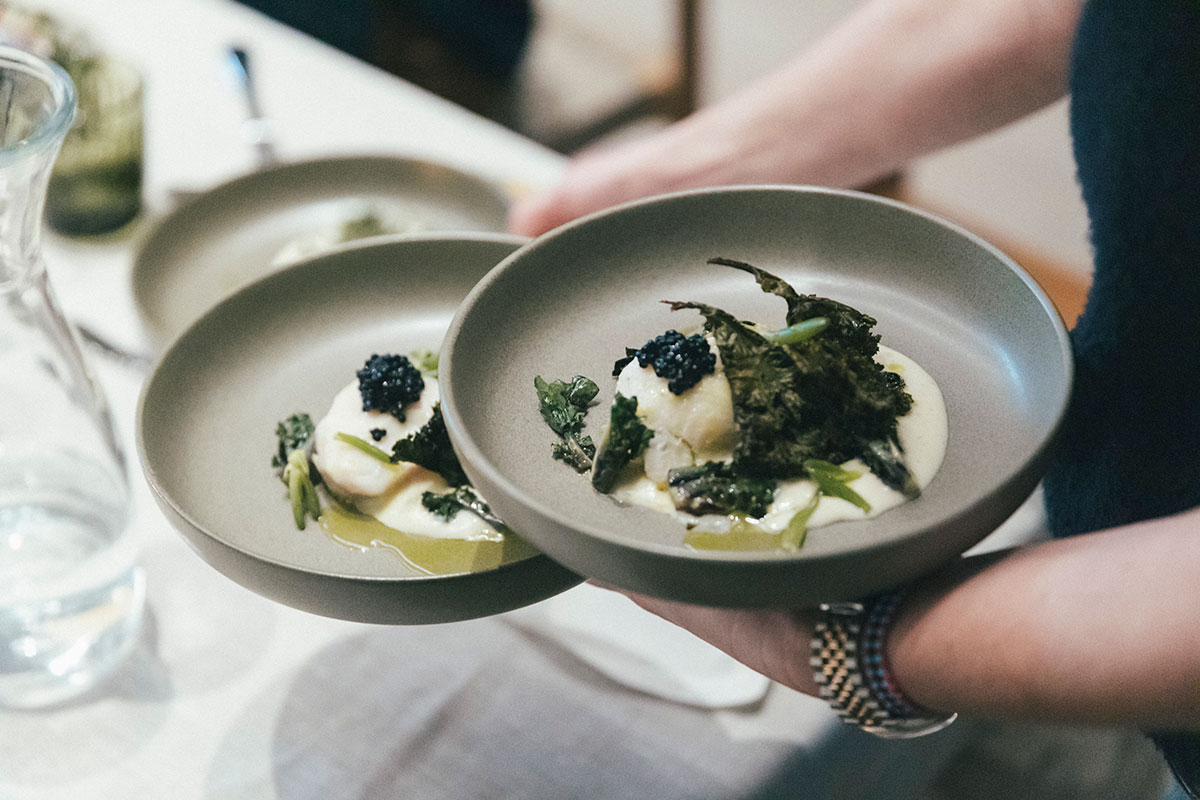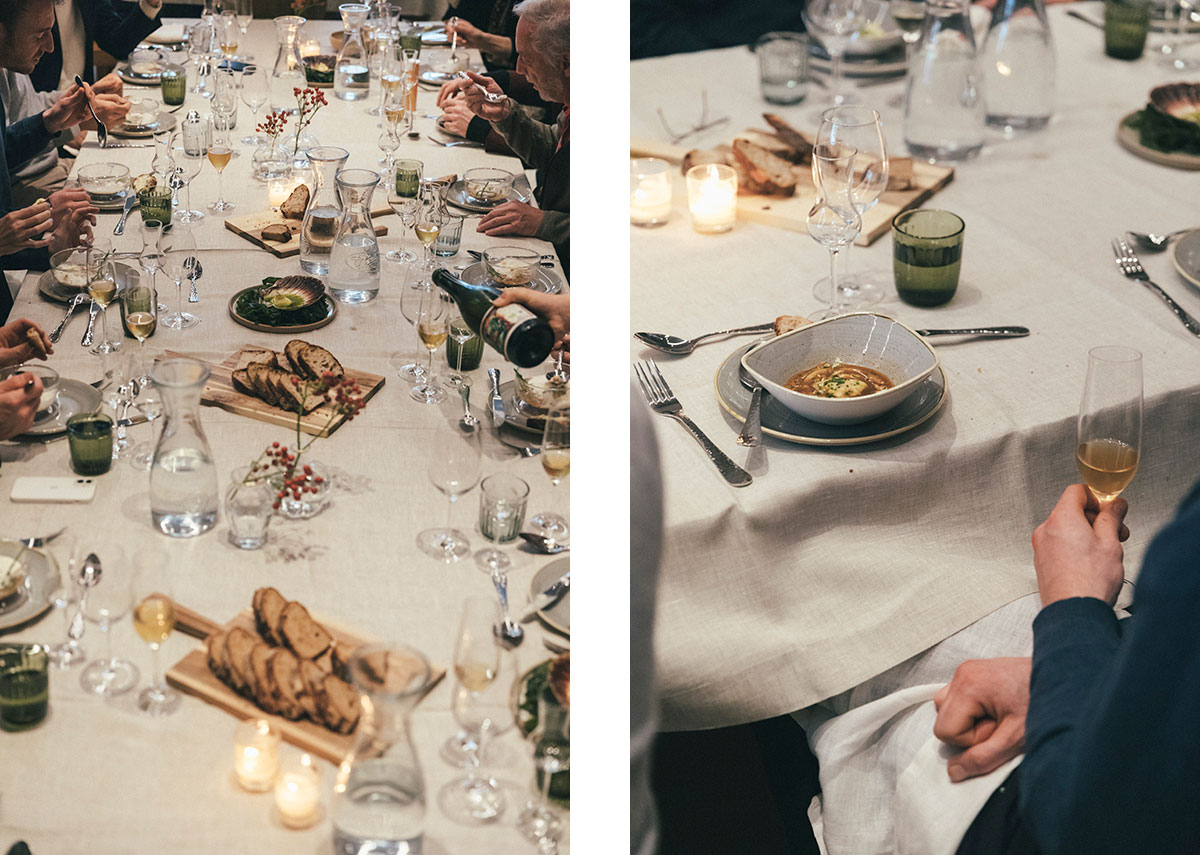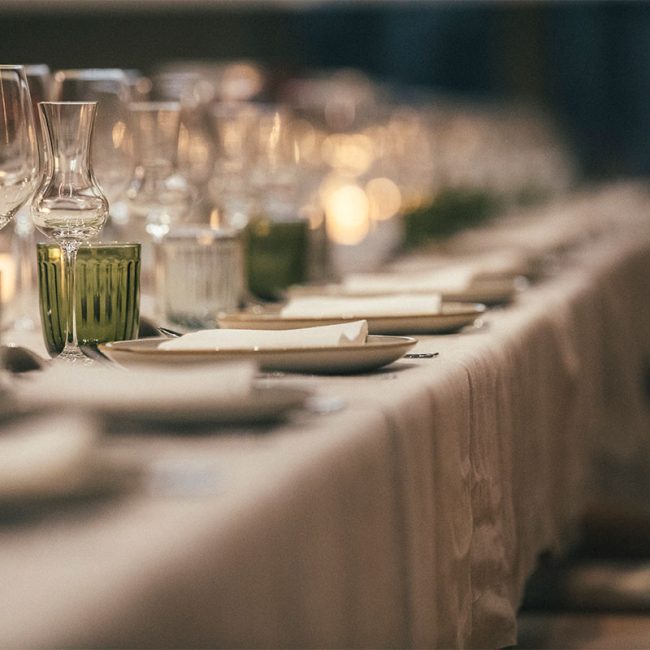During the dinner, from one dish to the next, some central themes emerge: the preservation and restoration of the balance between Hamburg, the harbor, the Elbe river, its environment and its human and non-human inhabitants; seasonal rhythms and cycles, and the interruption of these by man-made installations; the definition of edible and inedible, the understanding of species superiority and inferiority, and how language contributes to these ideas; and the clash between human appetites for food and recreation, food politics, and the Elbe River.
At the table, methods of speculative gastronomy are utilized to address the existential challenges of climate change, pollution and toxicity, global warming, and of the mass extinction of non-human species, through the act of eating. While these phenomena are by-products of industrial modernity and human activity, their consequences unfold at scales so far beyond our individual comprehension that they remain eerily abstract. But even if we struggle to grasp their full intensity, we co-exist with their impact daily. Through speculative gastronomy we ignite a rethinking of our relationship with the environment by transforming these abstract qualities into the humanly comprehensible, sensorial realm of food.
In this context, the table becomes a laboratory for understanding and shaping food futures. Eating becomes a method of inquiry, to unveil and explore the impact and various expressions of planetary transformations within the local context. Gastronomy becomes a tool for speculation on desirable futures, and for reflection on the present crisis.
This project was sponsored by, and the event was held at, The New Institute in Hamburg.




